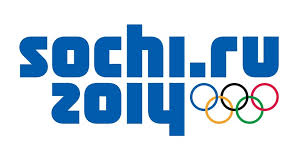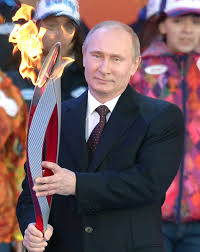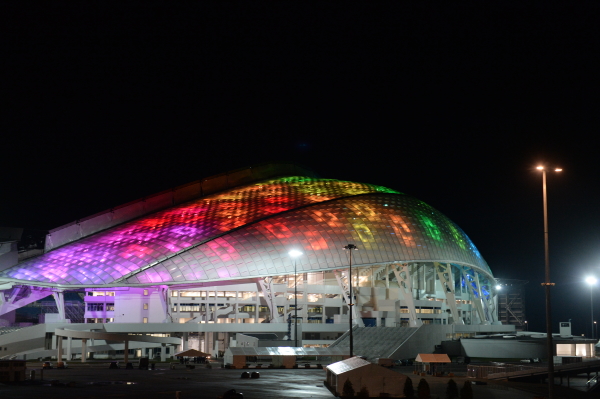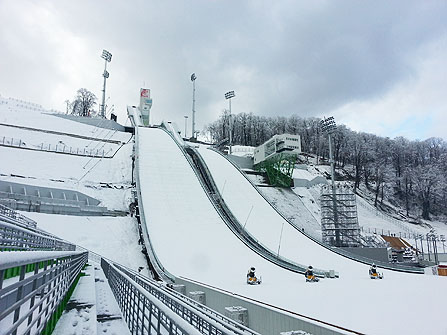All English posts
Gineva Statement on Ukraine
17 Apr 2014Representatives of the European Union, the United States, Ukraine and the Russian Federation issued today the following statement:
“The Geneva meeting on the situation in Ukraine agreed on Initial concrete steps to de-escalate tensions and restore security for all citizens. All sides must refrain from any violence, intimidation or provocative actions. The participants strongly condemned and rejected all expressions of extremism, racism and religious intolerance, including anti–semitism. All illegal armed groups must be disarmed; all illegally seized buildings must be returned to legitimate owners; all illegally occupied streets, squares and other public places in Ukrainian cities and towns must be vacated.
Amnesty will be granted to protestors and to those who have left buildings and other public places and surrendered weapons, with the exception of those found guilty of capital crimes. It was agreed that the OSCE Special Monitoring Mission should play a leading role in assisting Ukrainian authorities and local communities in the immediate implementation of these de-escalation measures wherever they are needed most, beginning in the coming days.
The US, EU and Russia commit to support this mission, including by providing monitors. The announced constitutional process will be inclusive, transparent and accountable. It will include the immediate establishment of a broad national dialogue, with outreach to all of Ukraine’s regions and political constituencies, and allow for the consideration of public comments and proposed amendments. The participants underlined the importance of economic and financial stability in Ukraine and would be ready to discuss additional support as the above steps are implemented.”
GENEVA (15 April 2014) – Misinformation, propaganda and incitement to hatred need to be urgently countered in Ukraine to avoid the further escalation of tension in the country, according to a UN human rights report* issued on Tuesday.
The report by the Office of the High Commissioner for Human Rights looks at the root causes of the protests that have taken place since November 2013, including corruption and widespread economic inequality, as well as the lack of accountability for human rights violations by the security forces and weak rule of law institutions. It also assesses the human rights situation in Crimea, including in the context of the 16 March referendum, and makes recommendations for the way forward.
“It is critical for the Government to prioritise respect for diversity, inclusivity and equal participation of all – including minorities – in political life,” said UN High Commissioner for Human Rights Navi Pillay. 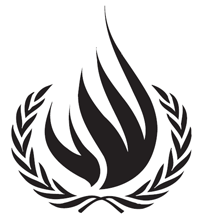
“Facts on the ground need to be established to help reduce the risk of radically different narratives being exploited for political ends. People need a reliable point of view to counter what has been widespread misinformation and also speech that aims to incite hatred on national, religious or racial grounds,” she added.
The report, which is based on information collected during two missions to Ukraine in March by Assistant Secretary-General for Human Rights Ivan Šimonović and a team of UN human rights monitors on the ground since 15 March, analyses events up to 2 April. It also anticipates and draws parallels between what happened in Crimea and events currently unfolding in eastern Ukraine.
“In eastern Ukraine, where a large ethnic Russian minority resides, the situation remains particularly tense,” the report says. “It will be important to immediately take initial measures to build confidence between the Government and the people, and among the various communities, and reassure all people throughout Ukraine that their main concerns will be addressed.”
Excessive use of force by the Berkut special police and other security forces led to the radicalisation of the protest movement, the report found. “Violations related to the Maidan protests should be investigated and addressed in order to ensure accountability of perpetrators,” the report states.
Information gathered so far indicates that 121 people were killed in violence between December 2013 and February 2014. Most acts of severe beatings, torture and other cruel, inhuman or degrading treatment were reportedly attributed to the Berkut.
The political aspects of recent developments in Crimea, which Mr Šimonović visited on 21 and 22 March, are beyond the report’s scope. However, the report notes that the situation created before and after the referendum of 16 March, which the General Assembly concluded had “no validity”, raised a number of human rights concerns pertaining to freedom of expression, freedom of assembly and other civil and political rights.
The presence of paramilitary and so-called self-defence groups as well as soldiers without insignia, was not conducive to an environment in which the will of voters could be exercised freely, and the UN Human Rights’ Office delegation received many reports of vote rigging.
“A number of measures taken in Crimea are deeply concerning from a human rights perspective,” the report says. These include the introduction of Russian citizenship, making it difficult for those who opt to maintain their Ukrainian citizenship to stay in Crimea. “The current situation also raises concerns with regard to land and property ownership, wages and pensions, health service, labour rights, education and access to justice,” the report adds.
The authorities in Crimea should also publicly condemn all attacks or harassment against human rights defenders, journalists or any members of the political opposition, the report urges, and ensure full accountability for such acts, through prompt, impartial and effective investigations and prosecutions.
It is widely assessed that while there were some attacks against the ethnic Russian community, these were neither systematic nor widespread. There are also allegations that some participants in the protests and clashes in eastern Ukraine were not from the region, and that some had come from the Russian Federation.
“What is clear from our findings is that there is an urgent need to ensure full respect for the rule of law and human rights in Ukraine and thus guarantee the enjoyment of all human rights for all, including minorities,” Pillay said.
“The international community, including the UN, can play a role in supporting the creation of such an environment. My Office and its monitoring team can provide impartial and authoritative human rights assessments to contribute to establishing the facts, de-escalating tension, and paving the way for an environment that is conducive to the holding of free and fair elections on 25 May,” the High Commissioner noted.
Among the report’s recommendations to the Government of Ukraine:
- Ensure accountability for all human rights violations committed during the unrest.
- Ensure inclusivity and equal participation in public affairs and political life.
- Prevent media manipulation by issuing timely and accurate information.
- Combat intolerance and extremism.
- Implement as a matter of priority measures to effectively eradicate corruption.
Among the recommendations to the authorities in Crimea:
- Actively resolve cases of missing persons, grant access to places of detention.
- Take all measures needed to protect the rights of persons affected by the changing institutional and legal framework, including citizenship.
- Investigate all allegations of hate speech and media manipulation.
- Ensure the protection of the rights of all minorities and indigenous peoples.
Regular reports shall be issued by the Human Rights Monitoring Mission in Ukraine (HRMMU), with one forecast for 15 May that will examine in greater depth the situation in eastern Ukraine.
ENDS
* Full report available here: http://www.ohchr.org/Documents/Countries/UA/Ukraine_Report_15April2014.doc
Czech Republic, Temerlin tender cancelled.
10 Apr 2014The Czech energy giant ČEZ cancelled a tender on two new nuclear reactors at the Temelín nuclear power plant. The deal – estimated as worth hundreds of billions of crowns – was shelved a day after the government stated it would not offer any state guarantees in the project. There were two remaining bidders in the deal, the US-based Westinghouse and Russian-led consortium MIR 1200, who have been left empty-handed.
The problem is represented by the state guarantees. The government has just decided it was in no position to provide them at a time when electricity prices were too low and the electricity sector too turbulent. Many observers agree that it would have been a risky proposition to promise them.
That doesn’t mean nuclear power in the future won’t be an option, but certainly the government will have to go back to the drawing board to decide on how to proceed next time.
The original tender was problematic because ČEZ is 70 percent state owned while 30 percent is owned by minority shareholders. They could have protested the deal as too risky if it had gone ahead, with too many intangibles over the next 10, 20 or 30 years.
Material From Radio Prague.
The entire Rail Baltica line is supposed to pass through Poland, Lithuania, Latvia and Estonia, covering 950 km between Warsaw and Tallinn. 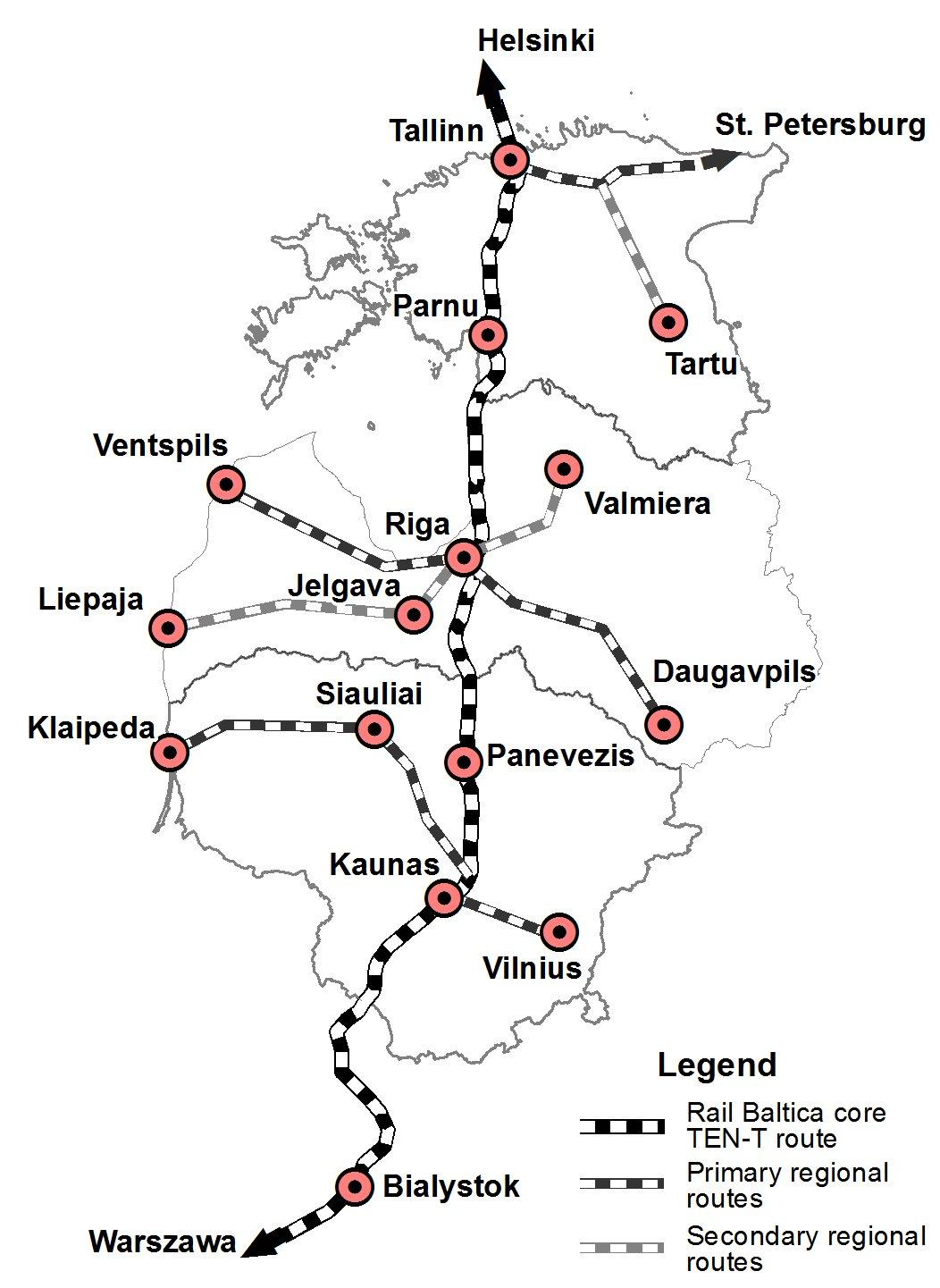
As former parts of the Soviet Union, the three Baltic states still have railway tracks that are incompatible with the European ‘Standard Gauge‘, and the new line would be built according to the latter specifications.
Although Poland already uses Standard Gauge, it would still need to upgrade its railway line from Warsaw to Trakiszki on the Lithuanian border so that trains can travel at high speed.
According to Lithuanian Prime minister Algirdas Butkevicius, Polish government has ‘promised’ to carry out the upgrade, and the entire Rail Baltica line is due to be completed by 2024.
Construction costs will be covered by the EU’s Structural and Cohesion Funds, as well as the budgets of the countries involved.
Radio Polska, LETA.
The unofficial Crimean Tatars parliament voted in favor of seeking “national and territorial autonomy” following Crimea’s secession from Ukraine and annexation by Russia two weeks ago.
Crimean Tatars’ assembly leader Refat Chubarov told more than 200 delegates: “In the life of every nation there comes a time when it must make decisions that will determine its future.”
“I ask you to approve … the start of political and legal procedures aimed at creating ethnic and territorial autonomy of the Crimean Tatars of their historic territory of Crimea.”
The assembly also voted in favor of his proposal, made in the Crimean Tatars historic capital of Bakhchisaray. Chubarov said he expected both Kiev and Moscow to react to the decision to seek autonomy.
Refat Chubarov announced plans to negotiate with both Russia and Ukraine, as well as with the UN, European Council, EU, OSCE and the Organization of Islamic Cooperation.
Chubarov explained that the Crimean Tatars have studied Russia’s constitution and are aware of the regional laws governing subjects within the Russian Federation, and thus have decided to demand the right to self-determination.
Present at the assembly were the head of Russia’s Council of Muftis Ravil Gaynutdin and Rustam Minnikhanov, the president of Russia’s republic of Tatarstan. Both have guaranteed to help Crimean Tatars leaders meet and negotiate with authorities in Moscow.
The Russian and Ukrainian governments have voiced their support for the Crimean Tatars.
Reuters, Itar-Tass, Interfax
President Putin called President Obama today to discuss the U.S. proposal for a diplomatic resolution to the crisis in Ukraine, which Secretary Kerry had again presented to Foreign Minister Lavrov at the meeting at the Hague earlier this week, and which we developed following U.S. consultations with our Ukrainian and European partners. President Obama suggested that Russia put a concrete response in writing and the presidents agreed that Kerry and Lavrov would meet to discuss next steps.
President Obama noted that the Ukrainian government continues to take a restrained and de-escalatory approach to the crisis and is moving ahead with constitutional reform and democratic elections, and urged Russia to support this process and avoid further provocations, including the buildup of forces on its border with Ukraine.
President Obama underscored to President Putin that the United States continues to support a diplomatic path in close consultation with the Government of Ukraine and in support of the Ukrainian people with the aim of de-escalation of the crisis. President Obama made clear that this remains possible only if Russia pulls back its troops and does not take any steps to further violate Ukraine’s territorial integrity and sovereignty. President Obama reiterated that the United States has strongly opposed the actions that Russia has already taken to violate Ukraine’s sovereignty and territorial integrity.
THE WHITE HOUSE
WASHINGTON – The U.S. Department of the Treasury’s Office of Foreign Assets Control (OFAC) today designated sixteen Russian government officials, members of the Russian leadership’s inner circle, including a Russian bank pursuant to Executive Order (E.O.) 13661, which was signed by President Obama on March 16, 2014. E.O. 13661 authorizes sanctions on, among others, officials of the Russian Government and any individual or entity that is owned or controlled by, that has acted for or on behalf of, or that has provided material or other support to, a senior Russian government official. 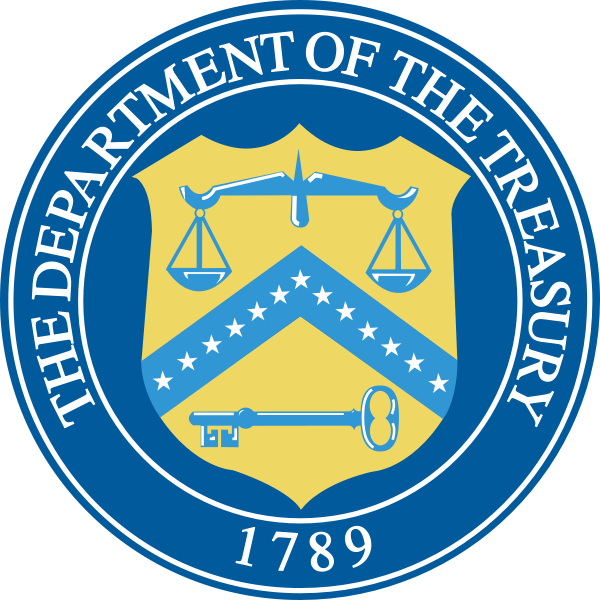
The sixteen individuals being sanctioned as Russian government officials are: Viktor Ozerov, Vladimir Dzhabarov, Evgeni Bushmin, Nikolai Ryzhkov, Sergei Zheleznyak, Sergei Mironov, Aleksandr Totoonov, Oleg Panteleev, Sergey Naryshkin, Victor Ivanov, Igor Sergun, Sergei Ivanov, Alexei Gromov, Andrei Fursenko, Vladimir Yakunin, and Vladimir Kozhin
Those being designated for acting for or on behalf of or materially assisting, sponsoring, or providing financial, material, or technological support for, or goods or services to or in support of, a senior official of the Government of the Russian Federation are: Gennady Timchenko, Arkady Rotenberg, Boris Rotenberg, Yuri Kovalchuk and Bank Rossiya. In addition to being designated for providing material support to Russian government officials, Bank Rossiya is also being designated for being controlled by designated inner circle member Kovalchuk.
“With its currency near an all-time low, its stock market down twenty percent this year and a marked rise in interest rates, Russia has already started to bear the economic costs of its unlawful effort to undermine Ukraine’s security, stability, and sovereignty,” said Under Secretary for Terrorism and Financial Intelligence David S. Cohen. “As President Obama has made clear, we will continue to impose costs in direct response to Russia’s provocative acts, even as we have made clear there is a path to de-escalate the situation in Ukraine that respects Ukraine’s sovereignty and territorial integrity and takes account of Russia’s legitimate interests.”
Russian Government Officials and Members of the Inner Circle:
Government Officials
The following sixteen individuals are being designated because they are officials of the Russian government. Although not the basis for the designation, several are also very close advisors to senior Russian government officials.
Viktor Ozerov is the Chairman of the Security and Defense Committee of the Federation Council of the Russian Federation. On March 1, 2014, Ozerov supported Russian President Vladimir Putin’s appeal regarding the use of the Russian Armed Forces in Ukraine.
Vladimir Dzhabarov is the First Deputy Chairman of the International Affairs Committee of the Federation Council of the Russian Federation. On March 1, 2014, Dzhabarov supported the Putin’s appeal regarding the use of the Russian Armed Forces in Ukraine.
Evgeni Bushmin is the Deputy Speaker of the Federation Council of the Russian Federation. On March 1, 2014, Bushmin publicly supported the deployment of Russian forces in Ukraine.
Nikolai Ryzhkov is a Senator in the Russian Upper House of Parliament (Federation Council). Ryzhkov publicly supported the deployment of Russian forces in Ukraine.
Sergei Zheleznyak is the Deputy Speaker of the State Duma of the Russian Federation.
Sergei Mironov is a Member of the Council of the State Duma, a Member of the State Duma Committee on Housing Policy and Housing and Communal Services, and Leader of the Fair Russia Faction in the Duma of the Russian Federation.
Aleksandr Totoonov is a Member of the Committee on Culture, Science, and Information, Federation Council of the Russian Federation. On March 1, 2014, Totoonov publicly supported the deployment of Russian forces in Ukraine.
Oleg Panteleev is the First Deputy Chairman of the Committee on Parliamentary Issues. On March 1, 2014, Panteleev publicly supported the deployment of Russian forces in Ukraine.
Sergey Naryshkin has been the Chairman of the Government Duma of the Federal Gathering of the Russian Federation since December, 2011. Additionally, he is a member of the National Security Council of the Russian Federation and of the United Russia party.
Victor Ivanov has been director of the Federal Drug Control Service (FSKN) of the Russian Federation since May 15, 2008; he was appointed as a member of the Security Council of the Russian Federation on May 25, 2008. Ivanov has served in a number of other government positions prior to that; he was Assistant to the President of the Russian Federation from 2004 – 2008; and Deputy Chief of the Administration of the Russian Federation from 2000 – 2004. Ivanov joined the KGB in 1977 and eventually rose to become the Deputy Director of the Federal Security Service. Ivanov is a close ally of Putin and served alongside Putin as the chief of staff of the St. Petersburg Mayor’s office in 1994 when Putin was first deputy head of the city’s administration.
Igor Sergun is the head of Russia’s military intelligence service (GRU) and is Deputy Chief of the General Staff.
Sergei Ivanov is the Chief of Staff of the Presidential Executive Office.
Alexei Gromov is the First Deputy Chief of Staff of the Presidential Executive Office.
Andrei Fursenko is an aide to the President of the Russian Federation and has been in that position since May 21, 2012. Fursenko has held a number of positions in the Government of the Russian Federation since 2001, including Minister of Education and Science from 2004 – 2012. Although not being designated for being a member of the Russian leadership’s inner circle, Fursenko first met Putin in 1993 and they remain closely associated.
Vladimir Yakunin was appointed as chairman of the board of the Russian state-owned company Russian Railways on June 15, 2005; he has remained as head of the company ever since. Yakunin is being designated because of his official position in the Russian government, but he is also a close confidant of Putin. Yakunin regularly consults with Putin on issues regarding the Russian Railways company. In addition, Yakunin accompanies Putin on many domestic and international visits. Yakunin met Putin while both were working in St. Petersburg. Yakunin decided to create a business center in the city and contacted Putin for his support. In addition, Yakunin became a member of the board of the Baltic Maritime Steamship Company on Putin’s instructions. Yakunin and Putin were also neighbors in the elite dacha community on the shore of Lake Komsomolsk and they served as cofounders of the Ozero Dacha Cooperative in November 1996.
Vladimir Kozhin was appointed the Head of Administration under the President of the Russian Federation by Putin on January 21, 2000. He has served continuously in that position until the present time. Kohzin is responsible for overseeing a staff of 60,000, over a hundred enterprises and institutions including the Kremlin and several other government buildings, and over four thousand vehicles. Kohzin’s positions have been variously referred to as Head of Administration, Head of the Presidential Affairs Office, Head of the Presidential Business Management Directorate of the Russian Federation, and head of the Presidential Property Management Directorate.
Members of the Inner Circle
The following individuals are being designated because each is controlled by, has acted for or on behalf of, or has provided material or other support to, a senior Russian government official.
Gennady Timchenko is one of the founders of Gunvor, one of the world’s largest independent commodity trading companies involved in the oil and energy markets. Timchenko’s activities in the energy sector have been directly linked to Putin. Putin has investments in Gunvor and may have access to Gunvor funds.
Arkady Rotenberg and Boris Rotenberg have provided support to Putin’s pet projects by receiving and executing high price contracts for the Sochi Olympic Games and state-controlled Gazprom. They have made billions of dollars in contracts for Gazprom and the Sochi Winter Olympics awarded to them by Putin. Both brothers have amassed enormous amounts of wealth during the years of Putin’s rule in Russia. The Rotenberg brothers received approximately $7 billion in contracts for the Sochi Olympic Games and their personal wealth has increased by $2.5 billion in the last two years alone.
Yuri Kovalchuk is the largest single shareholder of Bank Rossiya and is also the personal banker for senior officials of the Russian Federation including Putin. Kovalchuk is a close advisor to President Putin and has been referred to as one of his “cashiers.”
The following entity is being designated because it is controlled by, has acted for or on behalf of, or has provided material or other support to, senior Russian government officials.
Bank Rossiya (ОАО АБ РОССИЯ) is the personal bank for senior officials of the Russian Federation. Bank Rossiya’s shareholders include members of Putin’s inner circle associated with the Ozero Dacha Cooperative, a housing community in which they live. Bank Rossiya is also controlled by Kovalchuk, designated today. Bank Rossiya is ranked as the 17th largest bank in Russia with assets of approximately $10 billion, and it maintains numerous correspondent relationships with banks in the United States, Europe, and elsewhere. The bank reports providing a wide range of retail and corporate services, many of which relate to the oil, gas, and energy sectors.
As a result of Treasury’s action, any assets of the persons designated today that are within U.S. jurisdiction must be frozen. Additionally, transactions by U.S. persons or within the United States involving the individuals and entity designated today are generally prohibited.
Identifying Information
Name: Viktor Alekseevich Ozerov
DOB: January 5, 1958
POB: Abakan, Khakassia, Russia
Title: Chairman of the Security and Defense Committee of the Federation Council of the Russian Federation
Name: Vladimir Michailovich Dzhabarov
AKA: Vladimir Dzhabarov
DOB: September 29, 1952
Title: First Deputy Chairman of the International Affairs Committee of the Federation Council of the Russian Federation
Name: Evgeni Viktorovich Bushmin
AKA: Evgeny Bushmin
AKA: Yevgeny Bushmin
DOB: October 10, 1958
POB: Lopatino, Sergachiisky Region, Russia
Title: Deputy Speaker of the Federation Council of the Russian Federation
Name: Nikolai Ivanovich Ryzhkov
AKA: Nikolai Ryzhkov
DOB: September 28, 1929
POB: Duleevka, Donetsk Region, Ukraine
Title: Member of the Committee for Federal Issues, Regional Politics and the North of the Federation Council of the Russian Federation
Title: Senator in the Russian Upper House of Parliament
Name: Sergei Vladimirovich Zheleznyak
AKA: Sergei Zheleznyak
AKA: Sergey Zheleznyak
DOB: July 30, 1970
POB: Saint Petersburg, Russia
Title: Deputy Speaker of the State Duma of the Russian Federation
Name: Sergei Mikhailovich Mironov
AKA: Sergei Mironov
DOB: February 14, 1953
POB: Pushkin, Saint Petersburg, Russia
Title: Member of the Council of the State Duma, Member of the State Duma Committee on Housing Policy and Housing and Communal Services, and Leader of the Fair Russia Faction in the Duma of the Russian Federation
Name: Aleksandr Borisovich Totoonov
AKA: Alexander B. Totoonov
AKA: Alexander Totoonov
DOB: March 3, 1957
POB: Ordzhonikidze, North Ossetia, Russia
POB: Vladikavkaz, North Ossetia, Russia
Title: Member of the Committee on Culture, Science, and Information, Federation Council of the Russian Federation
Name: Oleg Evgenevich Panteleev
AKA: Oleg Panteleev
DOB: July 21, 1952
POB: Zhitnikovskoe, Kurgan Region, Russia
Title: First Deputy Chairman of the Committee on Parliamentary Issues
Name: Sergey Yevgenyevich Naryshkin
AKA: Sergei Naryshkin
DOB: October 27, 1954
POB: Saint Petersburg, Russia
Name: Victor Petrovich Ivanov
AKA: Viktor Ivanov
DOB: May 12, 1950
alt. DOB: 1952
POB: Novgorod, Russia
Name: Igor Dmitrievich Sergun
DOB: March 28, 1957
Title: Lieutenant General; Chief of the Main Directorate of the General Staff (GRU), Deputy
Chief of the General Staff
Name: Sergei Ivanov
AKA: Sergey Ivanov
DOB: January 31, 1953
POB: Saint Petersburg, Russia
Title: Chief of Staff of the Presidential Executive Office
Name: Alexei Gromov
DOB: 1960
POB: Zagorsk (Sergiev, Posad), Moscow Region, Russia
Title: First Deputy Chief of Staff of the Presidential Executive Office
Title: Presidential Administration Deputy Chief of Staff
Title: First Deputy Presidential Chief of Staff
Name: Andrei Alexandrovich Fursenko
AKA: Andrei Fursenko
AKA: Andrey Fursenko
DOB: July 17, 1949
POB: Saint Petersburg, Russia
Title: Aide to the President of the Russian Federation
Name: Vladimir Ivanovich Yakunin
DOB: June 30, 1948
POB: Zakharovo Village, Gus-Khrustalnyy Rayon, Vladimir Oblast, Russia
alt. POB: Melenki, Vladimir Oblast, Russia
Name: Vladimir Igorevich Kozhin
DOB: February 28, 1959
POB: Troitsk, Chelyabinsk Oblast, Russia
Name: Gennady Timchenko
AKA: Gennadiy Nikolayevich Timchenko
AKA: Gennady Nikolayevich Timchenko
AKA: Guennadi Timtchenko
Address: Geneva, Switzerland
DOB: November 9, 1952
POB: Leninakan, Armenia
alt. POB: Gyumri, Armenia
Nationality: Finland, Russia, Armenia
Name: Arkady Rotenberg
DOB: December 15, 1951
POB: Saint Petersburg, Russia
Name: Boris Rotenberg
DOB: January 3, 1957
POB: Saint Petersburg Russia
Name: Yuri Valentinovich Kovalchuk
AKA: Yury Valentinovich Kovalchuk
DOB: July 25, 1951
POB: Saint Petersburg, Russia
Name: Bank Rossiya
FKA: Aktsionerny BANK Russian Federation
Address: 2 Liter A Pl. Rastrelli, Saint Petersbrug, 191124, Russia
E-mail: bank@abr.ru
Web Site: www.abr.ru
SWIFT/BIC: ROSY RU 2P
US president Obama, Ukraine and sanctions.
20 Mar 2014THE PRESIDENT: Good morning, everybody. I wanted to provide an update on the situation in Ukraine and the steps that the United States is taking in response.
Over the last several days, we’ve continued to be deeply concerned by events in Ukraine. We’ve seen an illegal referendum in Crimea; an illegitimate move by the Russians to annex Crimea; and dangerous risks of escalation, including threats to Ukrainian personnel in Crimea and threats to southern and eastern Ukraine as well. These are all choices that the Russian government has made — choices that have been rejected by the international community, as well as the government of Ukraine. And because of these choices, the United States is today moving, as we said we would, to impose additional costs on Russia. 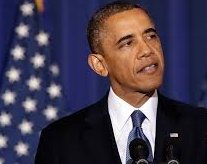
Based on the executive order that I signed in response to Russia’s initial intervention in Ukraine, we’re imposing sanctions on more senior officials of the Russian government. In addition, we are today sanctioning a number of other individuals with substantial resources and influence who provide material support to the Russian leadership, as well as a bank that provides material support to these individuals.
Now, we’re taking these steps as part of our response to what Russia has already done in Crimea. At the same time, the world is watching with grave concern as Russia has positioned its military in a way that could lead to further incursions into southern and eastern Ukraine. For this reason, we’ve been working closely with our European partners to develop more severe actions that could be taken if Russia continues to escalate the situation.
As part of that process, I signed a new executive order today that gives us the authority to impose sanctions not just on individuals but on key sectors of the Russian economy. This is not our preferred outcome. These sanctions would not only have a significant impact on the Russian economy, but could also be disruptive to the global economy. However, Russia must know that further escalation will only isolate it further from the international community. The basic principles that govern relations between nations in Europe and around the world must be upheld in the 21st century. That includes respect for sovereignty and territorial integrity — the notion that nations do not simply redraw borders, or make decisions at the expense of their neighbors simply because they are larger or more powerful.
One of our other top priorities continues to be providing assistance to the government of Ukraine so it can stabilize its economy and meet the basic needs of the Ukrainian people. As I travel to Europe next week to meet with the G7 and other European and Asian allies, I once again urge Congress to pass legislation that is necessary to provide this assistance — and do it right away. Expressions of support are not enough. We need action. I also hope that the IMF moves swiftly to provide a significant package of support for Ukrainians as they pursue reforms.
In Europe, I’ll also be reinforcing a message that Vice President Biden carried to Poland and the Baltic states this week: America’s support for our NATO allies is unwavering. We’re bound together by our profound Article 5 commitment to defend one another, and by a set of shared values that so many generations sacrificed for. We’ve already increased our support for our Eastern European allies, and we will continue to strengthen NATO’s collective defense, and we will step up our cooperation with Europe on economic and energy issues as well.
Let me close by making a final point. Diplomacy between the United States and Russia continues. We’ve emphasized that Russia still has a different path available — one that de-escalates the situation, and one that involves Russia pursuing a diplomatic solution with the government in Kyiv, with the support of the international community. The Russian people need to know, and Mr. Putin needs to understand that the Ukrainians shouldn’t have to choose between the West and Russia. We want the Ukrainian people to determine their own destiny, and to have good relations with the United States, with Russia, with Europe, with anyone that they choose. And that can only happen if Russia also recognized the rights of all the Ukrainian people to determine their future as free individuals, and as a sovereign nation — rights that people and nations around the world understand and support.
Thank you very much, everybody.
Crimea, a new Republic of Russia.
18 Mar 2014On March 16, a referendum was held on the territory of the Autonomous Republic of Crimea and the separate municipality of Sevastopol, in which 96.8% of voters opted to join the Russian Federation as its subjects, with a turnout of 83.1%. 
On March 18, Moscow proclaimed the annexation of Crimea (both the Republic and Sevastopol) to the Russian Federation as two of its entities. This decision has not been recognized by Kyiv and the International community.
Crimea is dependent on supplies from Ukraine of water, for agricultural and industrial products (75-80%), and electricity (80-85%). Supplies of natural gas are probably only important for certain industrial plants; Crimea extracts a significant amount of this material itself, and is able to meet the vast majority of the needs from its own territory (currently over 80%).
Welcome to the Olympic Games in Sochi.
7 Feb 2014Welcome
We are a group of long experienced European journalists and intellectuals interested in international politics and culture. We would like to exchange our opinion on new Europe and Russia.
Categories
- Breaking News (11)
- CIS (129)
- Climate (2)
- Energy&Economy (115)
- EU Eastern Dimension (85)
- Euro 2012 – Sochi 2014 – World Cup 2018, Sport (43)
- Euro-Integration (135)
- History Culture (198)
- International Policy (261)
- Military (74)
- Interviews (18)
- Italy – Italia – Suisse (47)
- Odd Enough (10)
- Poland and Baltic States (126)
- Religion (31)
- Russia (421)
- Survey (4)
- Turning points (4)
- Ukraine (176)
- Российские страницы (113)
Archives
- November 2020
- October 2020
- September 2020
- August 2020
- July 2020
- May 2020
- April 2020
- March 2020
- January 2020
- December 2019
- November 2019
- October 2019
- September 2019
- August 2019
- July 2019
- June 2019
- May 2019
- April 2019
- March 2019
- February 2019
- December 2018
- November 2018
- October 2018
- September 2018
- August 2018
- July 2018
- June 2018
- May 2018
- April 2018
- March 2018
- February 2018
- January 2018
- December 2017
- November 2017
- October 2017
- September 2017
- August 2017
- July 2017
- May 2017
- March 2017
- January 2017
- December 2016
- November 2016
- October 2016
- September 2016
- July 2016
- June 2016
- May 2016
- April 2016
- February 2016
- January 2016
- November 2015
- October 2015
- September 2015
- June 2015
- April 2015
- March 2015
- February 2015
- January 2015
- December 2014
- November 2014
- October 2014
- September 2014
- August 2014
- July 2014
- June 2014
- May 2014
- April 2014
- March 2014
- February 2014
- January 2014
- December 2013
- November 2013
- October 2013
- September 2013
- August 2013
- July 2013
- June 2013
- May 2013
- April 2013
- March 2013
- February 2013
- January 2013
- December 2012
- November 2012
- October 2012
- September 2012
- August 2012
- July 2012
- June 2012
- May 2012
- April 2012
- March 2012
- February 2012
- January 2012
- December 2011
- November 2011
- October 2011
- September 2011
- August 2011
- July 2011
- June 2011
- May 2011
- April 2011
- March 2011
- February 2011
- January 2011
- December 2010
- November 2010
- October 2010
- September 2010
- August 2010
- July 2010
- June 2010
- May 2010
- April 2010
- March 2010
- February 2010
- January 2010
- December 2009
- November 2009
- October 2009
- September 2009
- August 2009
Our books





